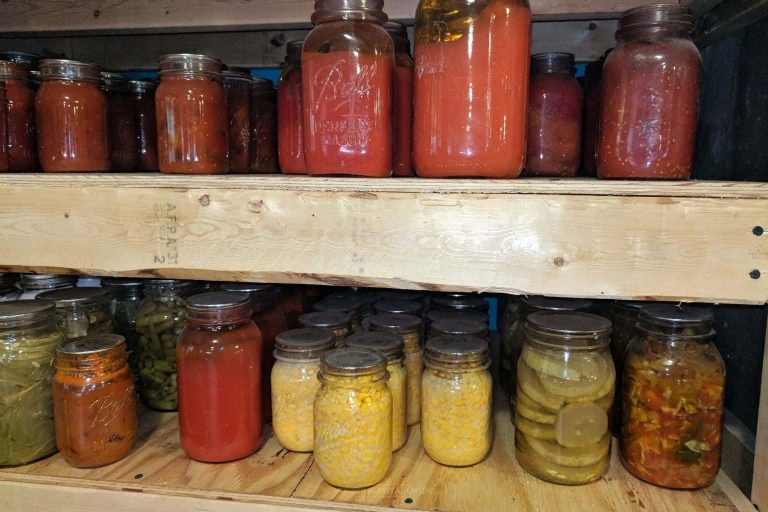Tag: crisis communications
Failure to Plan Increases Risk of Reputation Damage in High-Profile Lawsuits–Guest Post
(I don’t often invite guest posts from promotional releases, but I did request this from Greentarget as their research into the 20/20 hindsight of litigation-related crisis communication was very interesting. In litigation, lawyers often take the lead in directing communications. Some are very good at it. But most, if not all, do prioritize the risks in the court of law higher than the risks in the court of public opinion. That can lead to very damaging results. What it does lead to almost always is a more conservative approach to managing communications than is best for the company. That, it seems to me, is what this research points to.) By Larry Larsen, Greentarget In today’s 24-hour news environment, …
Health science journalism–don’t just blame the journalists for getting it so wrong
Coffee is good for you, coffee is bad for you. Red wine will save your life, red wine will kill you. Low carb diet is the best, low carb diet is dangerous. Most major news outlets feature health science news with information designed to help us choose healthier lives. The problem is, much of it seems contradictory, headlines seem designed to scare us into attention rather than inform us. It’s ironic: the fear expressed by particularly the younger generation about food, pharmaceuticals, lifestyle choices and the like is matched only by their extreme distrust in the media. In other words, it seems the attention-desperate media have been successful in creating a state of fear, even while losing the public’s …
Is Instagram TooLateagram?
It seems a bit ironic that an iconic brand with “instant” in its name may be severely impacted in crisis response by offering “too little, too late.” ”Too late” is now the classic story of much crisis response and may well describe the latest attempt of Instagram co-founder and CEO Kevin Systrom to quell the storm and restore trust. The good news is that he has come forward with the appropriate response regarding the attempt to change Terms of Service language to allow the photo-sharing service to sell users photos. His first attempt was weak …
Health science journalism–don’t just blame the journalists for getting it so wrong
Coffee is good for you, coffee is bad for you. Red wine will save your life, red wine will kill you. Low carb diet is the best, low carb diet is dangerous. Most major news outlets feature health science news with information designed to help us choose healthier lives. The problem is, much of it seems contradictory, headlines seem designed to scare us into attention rather than inform us. It’s ironic: the fear expressed by particularly the younger generation about food, pharmaceuticals, lifestyle choices and the like is matched only by their extreme distrust in the media. In other words, it seems the attention-desperate …
Is Instagram TooLateagram?
It seems a bit ironic that an iconic brand with “instant” in its name may be severely impacted in crisis response by offering “too little, too late.” ”Too late” is now the classic story of much crisis response and may well describe the latest attempt of Instagram co-founder and CEO Kevin Systrom to quell the storm and restore trust. The good news is that he has come forward with the appropriate response regarding the attempt to change Terms of Service language to allow the photo-sharing service to sell users photos. His first attempt was weak at best: in it he said basically, legalese is hard for…
Health science journalism–don’t just blame the journalists for getting it so wrong
Coffee is good for you, coffee is bad for you. Red wine will save your life, red wine will kill you. Low carb diet is the best, low carb diet is dangerous. Most major news outlets feature health science news with information designed to help us choose healthier lives. The problem is, much of it seems contradictory, headlines seem designed to scare us into attention rather than inform us. It’s ironic: the fear expressed by particularly the younger generation about food, pharmaceuticals, lifestyle choices and the like is matched only by their extreme distrust in the media. In other words, it seems the attention-desperate media have been successful in creating a state of fear, even while losing the public’s trust. …
Is Instagram TooLateagram?
It seems a bit ironic that an iconic brand with “instant” in its name may be severely impacted in crisis response by offering “too little, too late.” ”Too late” is now the classic story of much crisis response and may well describe the latest attempt of Instagram co-founder and CEO Kevin Systrom to quell the storm and restore trust. The good news is that he has come forward with the appropriate response regarding the attempt to change Terms of Service language to allow the photo-sharing service to sell users photos. His first attempt was weak at best: in it he said basically, legalese is hard…
Healthy food is on the table for 2013
You might have noticed my “growing” interest in food related issues. Partly a result of having some clients in agriculture, partly having some fairly strong opinions about the scare tactics activists and the media are using around food safety for their benefit–and to the potential harm of others. Partly probably because two years ago I moved onto a small farm and am greatly enjoying my own foods from great beef to fresh eggs to a garden loaded with more than we can eat. The food industry is in crisis. The crisis occasionally erupts into full-blown, high profile battles like pink slime and the GMO name calling attack on Cheerios. I&#…
Instagram–is this the dumbest move ever? (and it gets worse)
I’m following with interest the online hubbub over instagram. The short of it is Instagram, owned by Facebook, changed their Privacy Policy and Terms of Service to include their right to sell the images on Instagram to anyone without any compensation. Not sure if they were going to let you know first, or just sell them. This is not sitting well with the digital lynch mob. I’ve already seen major organizations or industry groups sending emails out to their broad lists encouraging any Instagram account holders to immediately delete their accounts. The hashtag #boycottinstagram is going nuts–info on how to delete existing …
First Shell, now ExxonMobil–the oil industry haters strike low blows
Shell Oil was attacked by Greenpeace and the Yes Men back in early summer in a sophisticated, cynical social media strategy. One of the key features was creating videos and a website that looked so much like the real Shell ads and website that it was bound to confuse. I predicted that this would not be the last of this sort of campaign. Sure enough, now ExxonMobil is being targeted in this particularly dark and cynical ad-lookalike. It’s called “Exxon hates your children.” It does seem to have the almost redeeming qualities that the anti-Shell campaign …
GMO controversy now hits General Mills and Cheerios hard
As if to illustrate the point I was making about the coming controversies around GMO foods, General Mills looks to have lost control of its Facebook page over GMO concerns. An activist organization has “outed” Cheerios as having GM ingredients resulting in what appears to be Cheerio’s and General Mills losing control of their Facebook page. Curious about what horrible, baby-killing ingredient that General Mills was sneaking into their breakfast cereal, I tried to get some info about the genetically modified ingredients causing all the stir. Sadly, the only thing I could find was all-out fear tactics without any real information or evidence of…
GMO–salmon in headlines now, but this is just a start
The FDA is stalling approval of a GMO salmon being produced by AquaBounty–delays that may force the company out of business. This, despite the FDA finding in 2010 that the fish are safe and pose little harm to natural fish or the environment. GMO, genetically modified organisms, specifically food and crops is very controversial. Proposition 37, a ballot initiative in California that would have required labeling for GMO food went down to defeat. Backers accused Monsanto, the favorite target of anti-production food activists, for funding a campaign to defeat it. (I’m sure if it had passed, the backers would have proclaimed…












